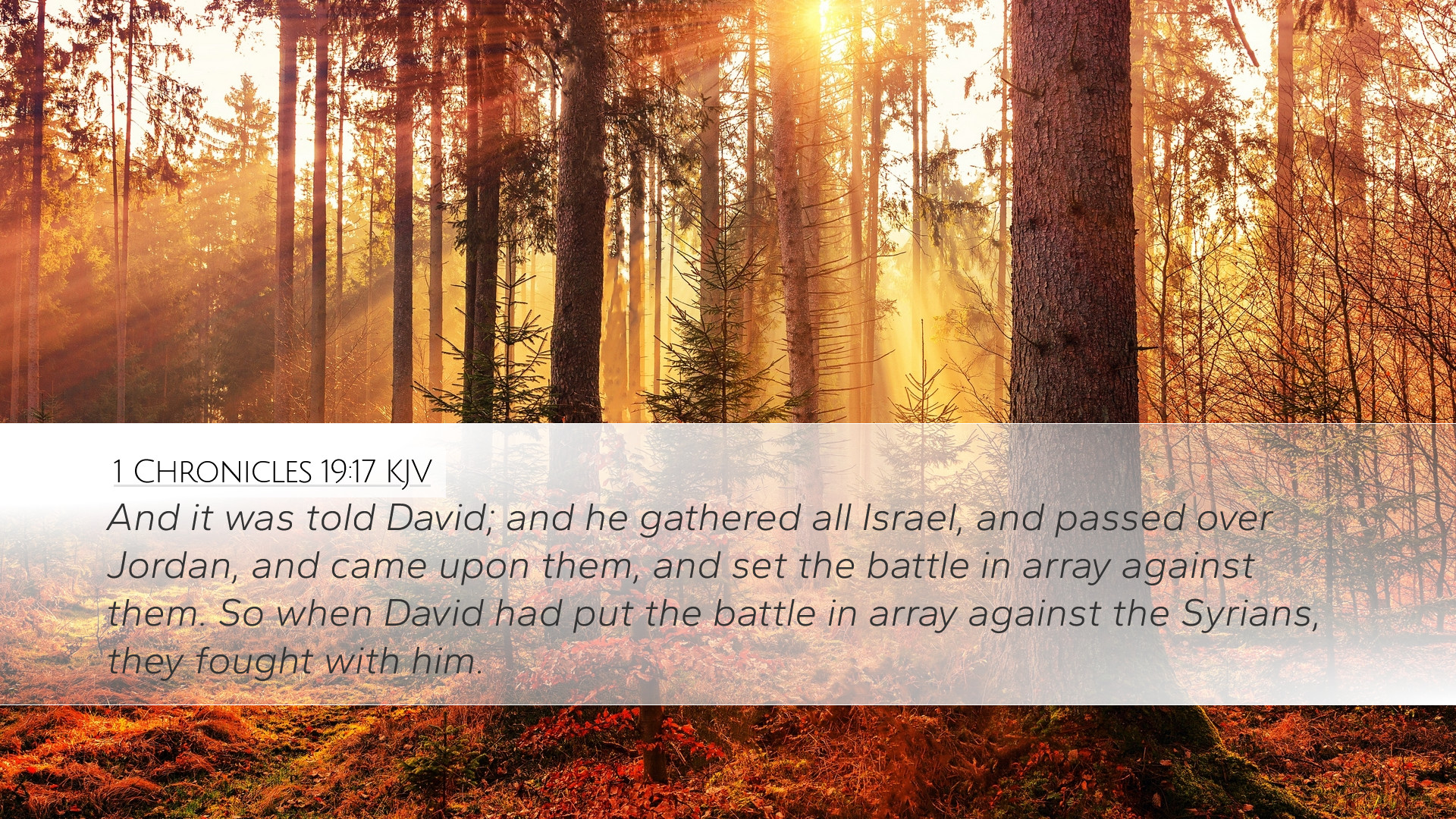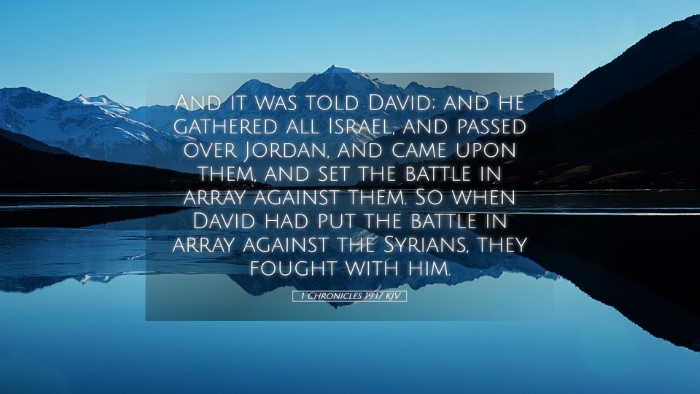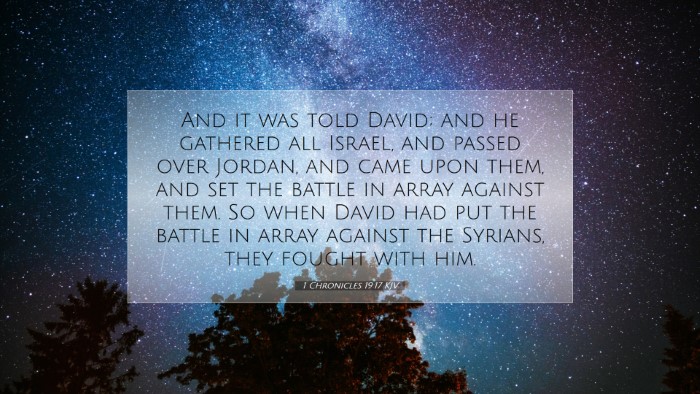1 Chronicles 19:17 - Commentary and Insights
Verse: "And it was told David; and he gathered all Israel together, and passed over Jordan, and came to Helam. And the Syrians set themselves in array against David, and fought against him."
Overview
This passage captures a pivotal moment in David's leadership as he confronts the challenges posed by the Syrians. The narrative provides deep insights into the dynamics of warfare, leadership, and the reliance on divine assistance in the face of adversities.
Contextual Background
The context surrounding this verse is crucial for understanding its implications. David's kingdom was increasingly being challenged by neighboring nations. Previous to this battle, David had shown kindness to Hanun, the king of the Ammonites, which was met with hostility. This aggression led to the formation of a coalition of Syrian forces against Israel.
Historical Significance
This event is situated in a broader narrative that illustrates the political and military tensions of the time. The Syrians had long been a formidable opponent for Israel, and their alliance with the Ammonites presented a significant threat. David's response to gather all Israel for battle highlights his role as a king and leader who takes seriously the defense of his nation.
Theological Insights
1. Divine Providence in Conflict:
As reflected in various commentaries, including those by Matthew Henry, this battle encapsulates the idea that God orchestrates events for His purposes, even amidst conflicts. God's sovereignty is a recurrent theme in historical narratives, illustrating that even in the throes of warfare, His ultimate plans are being fulfilled.
2. Leadership and Unity:
David's gathering of all Israel signifies a unified approach to leadership. Albert Barnes emphasizes the importance of collective effort in facing adversities. This moment serves as a reminder for modern leaders in the church and beyond that unity can be a formidable weapon against opposition.
3. The Weight of Responsibility:
David bore the tremendous responsibility of leadership during this crisis. Adam Clarke notes how a leader must not only prepare for battle but also seek God’s guidance. The weight of responsibility in spiritual leadership cannot be overstated; it calls for prayer, discernment, and a deep conviction of God's presence in times of trial.
Commentary Insights
- Matthew Henry: He notes that David's response to the news of the Syrian array demonstrated his character as a king. He emphasizes the need for vigilance and proactivity in leadership, asserting that David did not succumb to fear but acted decisively.
- Albert Barnes: Barnes elaborates on the tactical movements of David. He draws attention to the fact that David mustered not only his troops but also the importance of moral support and encouragement among his ranks. It reflects the inspiration leaders provide in times of uncertainty.
- Adam Clarke: Clarke provides an analysis of the geographical significance of Helam, indicating that it was a strategic point in battle. He also discusses the theological implications of divine intervention during the conflict, underscoring the importance of prayer and reliance on God in military endeavors.
Practical Applications
For pastors, students, and theologians, this instance from 1 Chronicles serves as a reminder of several key principles in both spiritual and practical life:
- The Importance of Awareness: Like David, being aware of the happenings around us is crucial. The spiritual leader must be astute to the schemes of adversaries, whether they manifest as societal challenges or internal struggles.
- Gathering Community: The call to unity is essential. As believers, there is strength in coming together in times of crisis, whether through prayer, support, or collective action.
- Seeking Divine Guidance: Before embarking on significant endeavors, it is paramount for leaders to seek divine guidance. This aligns with the biblical principle of trusting God’s providence and wisdom.
- Resilience in Leadership: Challenges, like the ones faced by David, will come. Leaders should cultivate resilience, remaining steadfast in purpose, and equipped to confront opposition with faith.
Conclusion
1 Chronicles 19:17 presents a rich tapestry of historical narrative and theological depth. The interactions and decisions encapsulated in this moment offer timeless lessons for contemporary leaders in faith communities. Embracing the principles of unity, divine reliance, and proactive leadership will provide the foundation necessary to confront the adversities that arise in our spiritual journeys.


